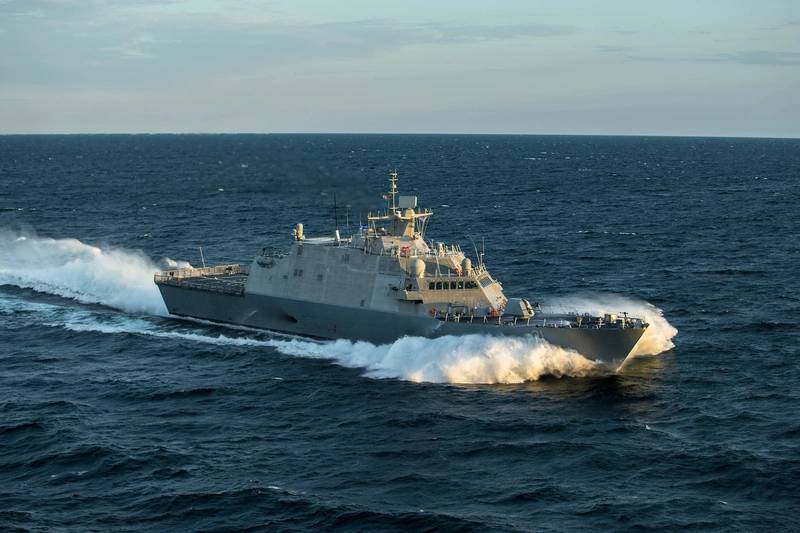Video: LCS 21 Completes Acceptance Trials
Littoral Combat Ship (LCS) 21, the future USS Minneapolis-Saint Paul, completed acceptance trials in Lake Michigan ahead of final outfitting and fine-tuning before delivery to the U.S. Navy in 2021.
LCS 21 is the 11th Freedom-variant LCS designed and built by the Lockheed Martin-led industry team that includes Fincantieri Marinette Marine and Gibbs & Cox.

"LCS 21 joins a fleet of sister ships delivering unique flexibility and capability to the U.S. Navy," said Joe DePietro, Lockheed Martin vice president and general manager, Small Combatants and Ship Systems. "Freedom-variant LCS are inherently capable to serve freedom of navigation, drug interdiction and humanitarian missions, and with additional capabilities onboarded, they can serve further focused missions. On LCS 21's acceptance trials, we successfully tested the ship's maneuverability, automation and core combat capability."
Trials included a full-power run, maneuverability testing, and surface and air detect-to-engage demonstrations of the ship's combat system. Major systems and features were demonstrated, including aviation support, small boat launch handling and recovery and machinery control and automation.
"I am pleased to see another successful acceptance trials on Lake Michigan," said Jan Allman, CEO of Fincantieri Marinette Marine. "Together with our partners, Lockheed Martin and the U.S. Navy, our proud shipbuilding team puts in long hours to deliver a proven warship for the fleet."
The Freedom-variant LCS has completed four successful deployments, including LCS 7 (USS Detroit)'s deployment completed this summer. LCS 7 deployed to the U.S. Southern Command supporting the Martillo campaign – a multinational effort targeting illicit trafficking routes in Central American coastal waters.
Regarding LCS' capabilities, U.S. Southern Commander Admiral Craig Faller recently stated, "LCS has proven to be an effective and adaptable platform capable of multiple missions in our area of responsibility. It has become an end-game enabler for U.S. Coast Guard law enforcement authorities who disrupt transnational criminal organizations and the smuggling of deadly narcotics. Adding the LCS to our Enhanced Counter Narcotics Operation is helping save lives."
The focused-mission LCS is designed to support mine countermeasures, anti-submarine and surface warfare missions and is easily adapted to serve future and evolving missions. Forty percent of the hull is easily reconfigurable, able to integrate Longbow Hellfire Missiles, 30 mm guns, manned and unmanned vehicles designed to meet today's and tomorrow's missions. LCS is standard equipped with Rolling Airframe Missiles (RAM) and a Mark 110 gun, capable of firing 220 rounds per minute.
The Freedom-variant LCS is equipped with gas turbines, diesel engines and water jets that together generate 114,000 horsepower making the ship capable of speeds in excess of 40 knots. The vessel is also highly automated, with the most efficient staffing of any combat ship.

